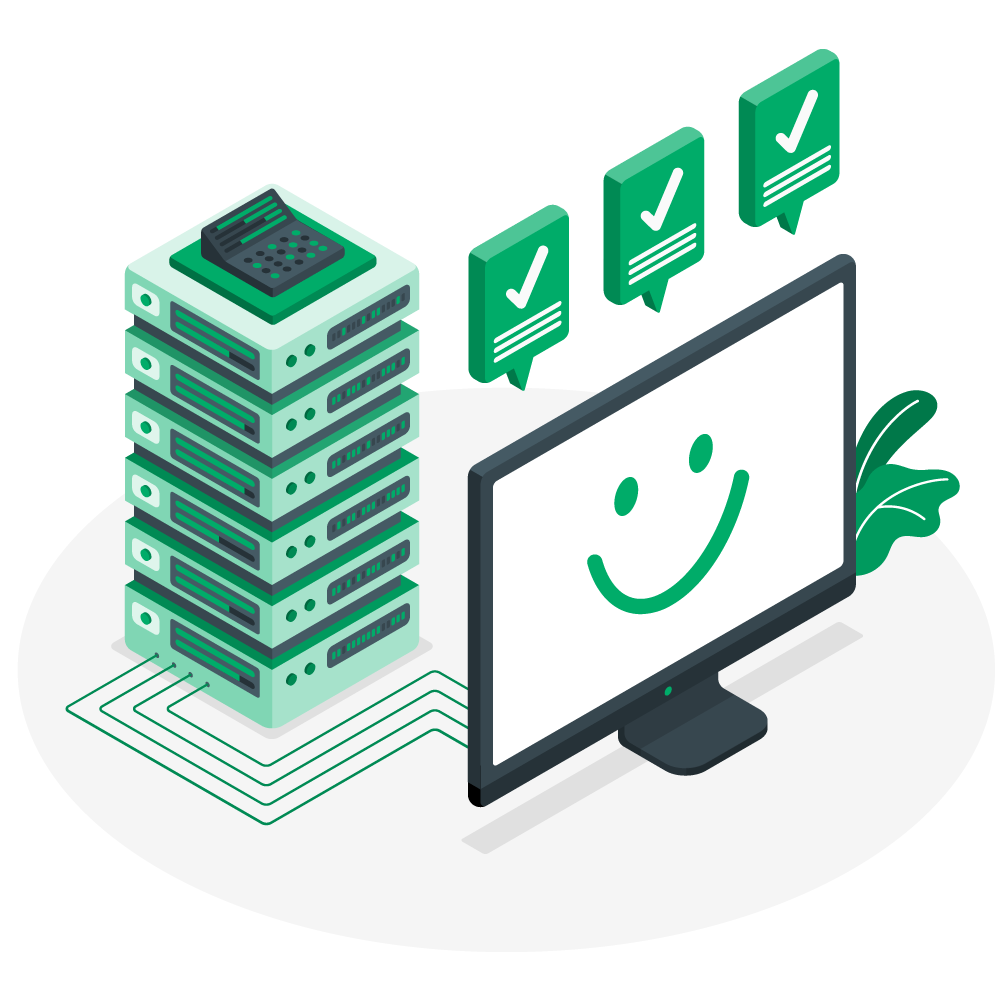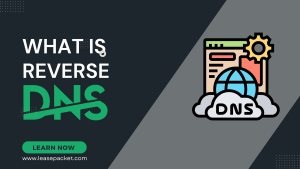Businesses often have to make a tough choice between Amazon Web Services (AWS) and a private cloud solution when it comes to server IT infrastructure. AWS provides scalability, flexibility, and a vast array of services. On the other hand, a private cloud has greater control, security, and customization. Understanding the differences between these two options is crucial for businesses aiming to optimize their infrastructure for performance, cost-efficiency, and security. Today, we will witness an in-depth comparison of AWS vs. private cloud solutions to explore their features, benefits, drawbacks, and considerations to help businesses make informed decisions. Let’s begin with their basic understanding.
Table of Contents
AWS vs. Private Cloud
Cloud computing has become a core part of modern businesses as it offers unparalleled flexibility & scalability. Only two names stand out when we think about cloud solutions – Amazon Web Services (AWS) and Private Cloud. Pioneered by Amazon, AWS is a leading public cloud provider offering a vast array of infrastructure and platform services on a pay-as-you-go basis. On the other hand, private cloud solutions involve the creation of a dedicated cloud environment within an organization’s own data centers, providing greater control and customization over resources and security measures. This article has AWS vs. Private Cloud – an in-depth comparison to help businesses understand their strengths, weaknesses, and suitability for different use cases.
Understanding AWS
Amazon Web Services, commonly known as AWS, is a cloud computing platform offered by Amazon.com. It provides a wide range of services, including computing power, storage, and networking – delivered over the Internet on a pay-as-you-go basis. Understanding its core services and advantages is crucial for organizations considering cloud migration or expansion. This AWS vs. private cloud post gives you helpful insights.
Definition of AWS
AWS is a comprehensive suite of cloud computing services offered by Amazon, encompassing infrastructure as a service (IaaS), platform as a service (PaaS), and software as a service (SaaS) offerings.
Core Services Offered by AWS
AWS provides a diverse range of services, including:
- Computing Services – such as Amazon EC2 for virtual servers and AWS Lambda for serverless computing.
- Storage Services – including Amazon S3 for object storage and Amazon EBS for block storage.
- Database Services – such as Amazon RDS for managed relational databases and Amazon DynamoDB for NoSQL databases.
- Networking Services – including Amazon VPC for virtual private clouds and Amazon Route 53 for domain name system (DNS) management.
- Management Tools – like AWS Management Console for centralized management and AWS CloudFormation for infrastructure automation.
Advantages of AWS
Scalability
AWS offers unparalleled scalability, allowing businesses to scale resources up or down in response to fluctuating demand.
Global Infrastructure
With data centers worldwide, AWS provides low-latency access to services from any location.
Cost-effectiveness
AWS operates on a pay-as-you-go pricing model, eliminating the need for upfront investments in hardware infrastructure.
Reliability
AWS boasts high availability and uptime, backed by redundant infrastructure and robust disaster recovery capabilities.
Flexibility
AWS offers a wide range of services and tools for flexibility to customize and innovate according to their needs. Studying AWS vs. private cloud guide is a great way to make informed decisions.
Limitations of AWS
Security Concerns
Some organizations may have reservations about entrusting sensitive data to a public cloud environment.
Dependency on Internet Connectivity
AWS services rely on Internet connectivity, which can pose challenges in regions with limited or unreliable access.
Vendor Lock-in
Heavy reliance on AWS services may hinder migration to alternative cloud providers due to vendor lock-in.
Potential for Cost Overruns
Costs can escalate rapidly in AWS environments without proper governance & cost management practices.
Performance Variability
In shared cloud environments, performance may vary due to resource contention and usage patterns of other tenants.
Exploring Private Cloud
Private cloud solutions involve the creation of dedicated cloud environments within an organization’s own data centers, providing greater control & customization over resources and security measures. Understanding primary components, advantages, and limitations of private cloud is essential for organizations seeking enhanced control and compliance in their cloud infrastructure.
Definition of Private Cloud
Private cloud refers to a cloud computing model where resources are dedicated exclusively to a single organization, providing greater control, security, and customization than public cloud offerings. AWS vs. private cloud will tell you all the immediate differences between the duo.
Primary Components of Private Cloud
Virtualization
Virtualization technology enables the creation of virtual instances of computing resources to allow for efficient resource utilization & flexibility.
Software-defined Networking (SDN)
SDN allows for the virtualization and automation of network management to enable organizations to dynamically configure and manage network resources.
Automated Provisioning
Automated provisioning tools streamline the deployment and management of virtualized resources to reduce manual intervention and enhance agility.
Self-service Portals
Self-service portals empower users to provision and manage resources on demand to increase operational efficiency and reduce dependency on IT teams.
Security & Compliance Measures
Private cloud environments typically feature robust security measures, including encryption, access controls, and compliance auditing to ensure data protection & regulatory compliance.
Also Read: Our blog post on Understanding AWS Cost and Usage Report
Advantages of Private Cloud
Enhanced Security
Private cloud solutions offer dedicated resources and isolated environments to provide greater control over security measures and compliance requirements.
Customization
Organizations can tailor private cloud environments to their needs, including hardware configurations, network setups, and software stacks for greater flexibility & optimization.
Regulatory Compliance
Private clouds enable organizations to maintain compliance with industry-specific regulations by providing greater control over data governance and sovereignty, mitigating compliance risks, and ensuring adherence to regulatory standards.
Performance Control
Private cloud environments offer dedicated resources and infrastructure, resulting in consistent performance for mission-critical workloads.
Data Sovereignty
Private cloud solutions enable organizations to maintain complete control over their data to ensure it remains within their network perimeter and under their jurisdiction, addressing concerns about data privacy and third-party access. AWS vs. private cloud comparison is a must before buying a server.
Also Read: Our blog post on AWS Billing Partner Services
Limitations of Private Cloud
Higher Initial Costs
Building and maintaining a private cloud infrastructure requires significant upfront investment in hardware, software, and personnel.
Limited Scalability
Unlike public clouds, private clouds have finite resources, making it challenging to scale rapidly in response to fluctuating demand.
Complexity
Managing a private cloud environment can be complex, requiring specialized skills & expertise.
Reduced Geographic Reach
Private clouds are confined to the organization’s data centers, limiting access from remote locations.
Maintenance Overhead
Organizations are responsible for ongoing maintenance and upgrades in a private cloud environment.
AWS vs. Private Cloud
Comparing AWS & Private Cloud
Comparing AWS & private cloud solutions involves evaluating various factors such as scalability, security, cost-effectiveness, control, compliance, performance, geographic reach, and maintenance requirements. This comparative analysis helps organizations decide the most suitable cloud infrastructure option.
Scalability
AWS offers on-demand scalability to allow businesses to scale resources rapidly in response to fluctuating demand – while private cloud environments may have scalability limitations due to finite resources and infrastructure constraints.
Security
Private cloud solutions provide enhanced security features and greater control over data and access, making them suitable for organizations with strict security and compliance requirements – while AWS offers robust security measures but may raise concerns about data privacy and regulatory compliance.
Cost-effectiveness
AWS operates on a pay-as-you-go pricing model, eliminating the need for upfront investments in hardware infrastructure – while private cloud solutions may entail higher initial costs but offer long-term cost savings & predictability.
Control & Customization
Private cloud environments offer greater control and customization options for organizations to tailor infrastructure and security measures to their specific needs – and AWS provides a standardized platform with limited customization options.
Compliance & Regulatory Requirements
Private cloud solutions enable organizations to maintain compliance with industry-specific regulations by providing greater control over data governance and sovereignty; however, AWS offers compliance certifications and assurances but may raise concerns about data residency & jurisdiction.
Performance
Private cloud environments offer dedicated resources and infrastructure for consistent & predictable performance for mission-critical workloads. AWS provides scalable and reliable performance but may be subject to performance variability in shared cloud environments.
Geographic Reach
AWS has a global infrastructure with data centers to provide low-latency access to services from any location. On the other hand, private cloud solutions are confined to the organization’s data centers, limiting geographic reach and access from remote locations.
Maintenance & Management
AWS manages infrastructure maintenance and updates, reducing operational overhead for organizations. Private cloud solutions require organizations to handle ongoing maintenance and management tasks, including patch management, hardware upgrades, and software updates.
What to Choose between AWS & Private Cloud? | AWS vs. Private Cloud
When choosing between AWS & private cloud solutions, organizations must consider various factors to determine the most suitable option for their requirements. Factors such as business objectives, regulatory compliance requirements, data sensitivity, cost considerations, scalability requirements, existing infrastructure, expertise, and geographic distribution of users play a crucial role in decision-making.
Business Needs & Objectives
Organizations should align cloud infrastructure choices with their business objectives, considering scalability, agility, innovation, and cost-effectiveness.
Regulatory Compliance Requirements
Industries subject to regulatory compliance requirements must ensure that chosen cloud solutions meet relevant data privacy, security, and compliance standards.
Data Sensitivity & Privacy Concerns
Organizations handling sensitive data must assess the level of control and security offered by cloud solutions to mitigate risks related to data breaches and privacy violations.
Cost Considerations
Organizations should evaluate the total cost of ownership (TCO) of AWS & private cloud solutions after considering initial investments, ongoing operational costs, and potential cost savings.
Scalability Requirements
Businesses with fluctuating demand and growth projections must assess the scalability capabilities of cloud solutions to ensure they can accommodate future expansion and resource requirements.
Existing Infrastructure & Expertise
Organizations with existing infrastructure investments and expertise may prefer private cloud solutions to leverage existing resources and minimize disruption to operations.
Geographic Distribution of Users
Organizations with geographically dispersed users must consider the geographic reach & performance implications of cloud solutions to ensure optimal user experiences.
AWS vs. Private Cloud Statistics
AWS
Market Dominance
AWS holds a significant share of the global cloud market, with a dominance of approximately 32%, making it the leading cloud service provider worldwide. (Source: Synergy Research Group)
Wide Range of Services
AWS has 200 fully-featured services for businesses across computing, storage, databases, analytics, and more. (Source: Amazon Web Services)
Global Infrastructure
AWS operates in 25 geographic regions worldwide, comprising 81 availability zones, providing low-latency access to services from virtually any location. (Source: Amazon Web Services)
Private Cloud
Enhanced Security
Organizations using private cloud experience 94% fewer security incidents than public cloud solution users, demonstrating the heightened security measures inherent in private cloud environments. (Source: LogicMonitor)
Customization Flexibility
75% of organizations opt for private cloud solutions for their ability to customize infrastructure according to specific business needs, providing greater control & flexibility. (Source: Forrester)
Compliance Assurance
Private cloud environments help organizations achieve compliance with industry-specific regulations, with 78% of companies citing compliance as a primary reason for choosing private cloud over public cloud. (Source: IDC)
AWS vs. Private Cloud Bottom Line
Examining real-world case studies provides valuable insights into the practical applications and benefits of AWS and private cloud solutions across various industries and use cases. These case studies highlight successful implementations, challenges faced, and lessons learned to help organizations gain a deeper insight into the potential impact of cloud infrastructure choices on their business operations and outcomes.
AWS vs. Private Cloud Afterthoughts
The choice between AWS & private cloud solutions depends on various factors. By carefully evaluating these factors, organizations can make informed decisions that align with their business goals and drive success in the evolving space of cloud computing. Whether prioritizing flexibility, security, compliance, or cost-effectiveness – choosing the right cloud infrastructure option is crucial for maximizing business value and achieving long-term success.
FAQs
What is AWS?
AWS is Amazon’s complete cloud computing platform. It provides a wide range of infrastructure and platform services on a pay-as-you-go basis.
How does AWS benefit businesses?
AWS offers scalability, global infrastructure, cost-effectiveness, reliability, and flexibility – empowering businesses to innovate, scale, and optimize their IT operations without heavy upfront investments.
What is a private cloud?
A private cloud is a cloud computing model where resources are dedicated exclusively to a single organization, offering greater control, security, and customization than public cloud offerings.
Why choose a private cloud over AWS?
Organizations opt for a private cloud to enhance security, customize infrastructure, maintain regulatory compliance, ensure performance control, and retain full data sovereignty within their data centers.
How does AWS compare to a private cloud in terms of scalability? AWS vs. Private Cloud?
AWS offers on-demand scalability, allowing businesses to rapidly scale resources in response to fluctuating demand – while private cloud environments may have scalability limitations due to finite resources.
What are the key factors to consider when choosing between AWS & a private cloud? AWS vs. Private Cloud?
Key considerations include business needs, regulatory compliance requirements, data sensitivity, cost considerations, scalability requirements, existing infrastructure, expertise, and geographic distribution of users.
What are the other ways to choose a cloud model?
The best way to choose a cloud service is to take help from a cloud service provider like Leasepacket. They know everything and tell you what is best for you.

























